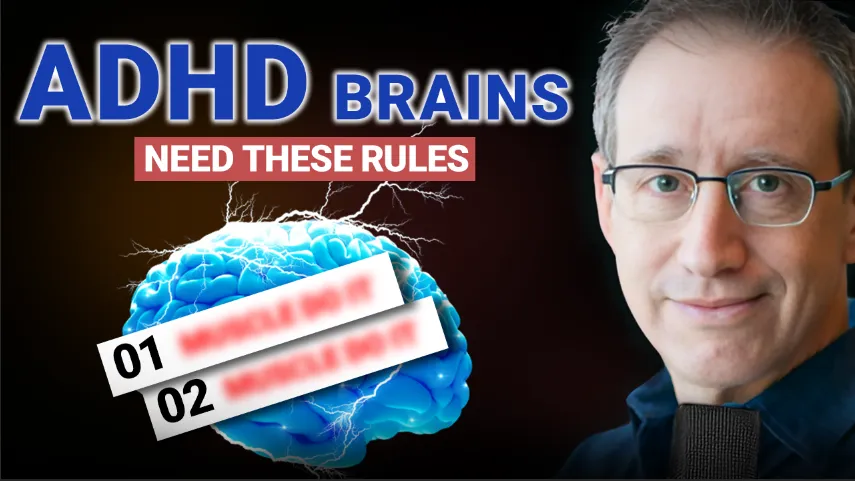Rocket Ship Founder Podcast
Rocket Ship Founder is my weekly podcast dedicated to supporting Founders on their journey. Episodes are short (around 12 minutes) but high value. Each week I dig into a particular topic on Founder life. Special focus on helping ADHD Founders, building great offers and reliable lead flow. Enjoy!
Previous Posts and Podcast Episodes

Can the Four Agreements reduce stress and self-doubt
Life today feels crowded with demands. Work, family, and personal goals all compete for time and focus. Many people look for simple ways to feel calm, improve relationships, and stay true to themselves.
This search leads many back to The Four Agreements. The book shares clear, practical wisdom for everyday life. Its lessons are easy to grasp yet powerful when practiced daily.
I’m Steve August, founder of the ADHD Entrepreneur Accelerator. I know this from experience. I was diagnosed with ADHD at 54. Since then, I’ve shared what I’ve learned through my podcast, The ADHD Entrepreneur Accelerator, and my Weekly OS program.
I often connect The Four Agreements to daily struggles like negative self-talk, rejection sensitivity, and challenges with focus and planning. These lessons show growth is possible, even on tough days.
In this article, we will explore each agreement in detail. You will see why words shape reality, how not taking things personally protects peace, why avoiding assumptions clears confusion, and how doing your best builds trust.
What Is the First Agreement in the Four Agreements?
The first agreement from The Four Agreements is about being careful with your words. Words carry weight. They can either lift you or pull you down. This is true for the words you speak to others and those you say to yourself.
Why It Matters
We all have an inner voice. At times, that voice turns into a critic. It tells us harsh things and makes us doubt ourselves. When you keep repeating these thoughts, they begin to feel real. This is why paying attention to your words is so important. They shape how you feel and how you act every day.
How to Practice It
Listen to your self-talk. Notice when you speak to yourself in a harsh way.
Pause and ask. Are these thoughts facts or just judgments
Choose better words. Replace criticism with words that show care and patience.
Speak with respect. When you talk to others, use words that show honesty and kindness.
Everyday Impact
This practice is not about never making mistakes. It is about being aware of the power in what you say. When you choose your words with care, you reduce stress and create stronger bonds with people around you.
Moreover, treating yourself with kinder words builds confidence. You start facing challenges with calm instead of doubt. Each time you stop and replace a harsh thought with a gentle one, you change how you see yourself.
In short, being impeccable with your word means using words to support, guide, and heal. It is a simple practice that, over time, makes life feel lighter and relationships more genuine.
The Second and Third Agreements in the Four Agreements
The second agreement is not to take anything personally. It may sound easy, but in real life, it feels tough. When someone criticizes or reacts sharply, we often think, “This must be about me.” That thought can sting and grow heavier if you already doubt yourself.
Why Not Take Things Personally
Most reactions from others come from their world, not yours.
People project their stress, moods, and past experiences into what they say.
Their words usually reflect them, not your value or effort.
When you avoid taking things personally, you free yourself from guilt and overthinking. You also gain calm and respond with more balance.
The Third Agreement
The third agreement is not to make assumptions. Many of us build whole stories from small clues. A short text, a pause, or even silence can spark thoughts of rejection or failure. These imagined stories rarely match the truth.
How to Avoid Assumptions
Pause before reacting. Give yourself a moment to breathe and think.
Ask questions. Check what someone meant instead of guessing.
Seek context. Look at the whole picture, not just one detail.
Everyday Practice
Letting go of assumptions improves relationships. It stops small doubts from turning into big problems. It also eases worry because you deal with facts, not guesses.
Together, these two agreements create steady ground. Not taking things personally protects your heart. Not making assumptions clears your mind. Both help you handle daily situations more easily and build stronger, healthier connections.
What Is the Last Agreement in the Four Agreements
The fourth agreement is always do your best. At first, it sounds simple, but it holds a powerful meaning. Doing your best is not about being perfect or pushing yourself too hard. It is about giving honest effort with the energy and focus you have today.
Why Your Best Changes
Your best is not the same every day. It shifts with your energy, stress level, and state of mind. On some days, you may feel strong and get a lot done. On other days, your energy may drop, and progress slower. Both count as doing your best because you gave what you had in each case.
How to Practice This Agreement
This agreement encourages you to meet yourself where you are. A good week often comes from focusing on what matters most and giving it steady attention.
When your focus feels sharp, take on bigger tasks. When your energy feels low, work on smaller steps that still move you forward.
High-energy days: Handle complex or creative work.
Low-energy days: Focus on simpler but still important tasks.
Doing your best does not mean doing more than you can manage. It also does not mean lowering your effort. It means finding balance and giving what you honestly can in that moment.
Everyday Benefits
When you live by this agreement, you free yourself from guilt. You stop blaming yourself for not meeting impossible standards. Moreover, you build trust in yourself because you know you have put in your full effort.
Over time, this steady approach leads to real progress, even if each day looks different. In short, always doing your best means showing up with honesty and effort, no more and no less.
Why Do the Four Agreements Matter in Everyday Life?
The four agreements give us a clear and simple guide to live with more balance and peace. They are impeccable with their word, don’t take anything personally, don’t make assumptions, and always do their best.
Each teaches us something important, but together they create a strong way to handle life and relationships more easily.
Why These Agreements Are So Important
These agreements go beyond personal growth. They shape how we connect with others and how we treat ourselves. Words influence the way we see life, so speaking with care matters.
Letting go of personal offense frees us from carrying stress that does not belong to us. Avoiding assumptions helps us stop misunderstandings before they turn into problems. Doing our best gives us peace because we know we have made an honest effort.
Moreover, they remind us that growth does not need to be complex. Four simple steps can shift how we think, speak, and relate to the people around us.
How They Help in Daily Life
They strengthen relationships by lowering conflict and building trust.
They ease self-doubt by teaching us to speak kindly to ourselves.
They bring calm by helping us pause and respond with thought.
These agreements become a steady guide in small and big moments when practiced daily. They give us tools to handle challenges and improve everyday interactions.
The strength of these agreements lies in their simplicity. They do not ask us to be perfect. Instead, they invite us to practice awareness, kindness, and balance. When we follow them, life feels lighter, calmer, and more genuine.
Conclusion
Living by the four agreements gives us a simple way to bring more peace into daily life. They remind us to speak with care, to let go of things that are not truly about us, to stop guessing and asking instead, and to give our best with what we have each day.
These steps are not about being perfect. They are about being honest with ourselves and kinder with others. When we use them, we build stronger trust in our words and actions.
Moreover, they help us respond calmly instead of stressing, improving our thoughts and relationships. Each agreement teaches something valuable on its own. Together, they form a steady guide supporting personal growth and better connections with the people around us.
By practicing them daily, we keep our focus on what matters most: awareness, balance, and kindness. Ultimately, the four agreements show us that small, consistent choices can shape a life that feels lighter and more genuine.
FAQs
What is the main goal of the Four Agreements?
The main goal is to help people live more peacefully, balanced, and honestly. They provide simple steps to improve our thinking, acting, and relating to others.
Can anyone practice the Four Agreements?
Yes, anyone can use them. They are not tied to age, culture, or background. They focus on human behavior and self-awareness, which apply to all.
How long does it take to see changes from practicing the Four Agreements?
Change often starts with awareness. Some shifts can be felt quickly, while deeper habits may take longer. Consistency matters more than speed.
Why is self-talk important in the Four Agreements?
Self-talk shapes how we see ourselves. Positive words build confidence, while harsh words create doubt and stress.
Do the Four Agreements apply to work settings?
Yes, they fit well in the workplace. They help reduce misunderstandings, strengthen teamwork, and make communication more respectful.
STAY CONNECTED & KEEP LEARNING
Mastering focus and building a thriving business with ADHD doesn’t happen overnight, and you don’t have to do it alone.
Subscribe to the ADHD Entrepreneurs Newsletter on LinkedIn to get stories, tips, and ADHD-friendly strategies straight to your inbox to help you stay out of overwhelm, reclaim your focus, and achieve your full potential.
Copyright 2025 Steve August Coaching | All Rights Reserved

